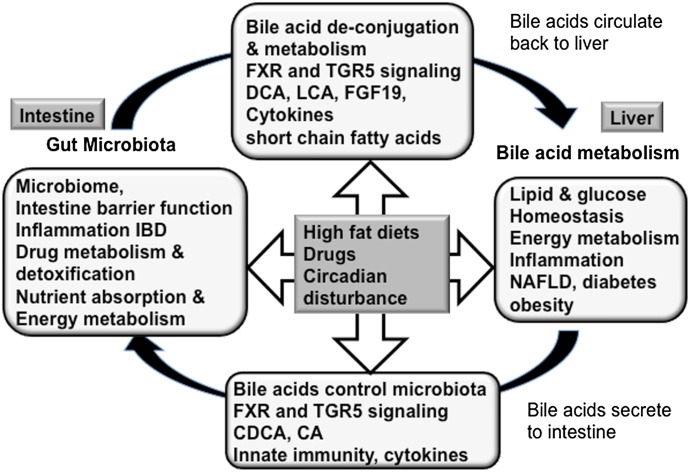Fig. 9.
Bile acid and gut microbiota. In the intestine, bacteria overgrowth damages intestine barrier function and causes IBD, diarrhea, and impaired drug metabolism, detoxification, and absorption. Bile acids control gut bacteria overgrowth and protect against inflammation. Gut microbiota also play a role in biotransformation of bile acids and affected bile acid composition and metabolism via FXR and TGR5 signaling in the liver. In the liver, high levels of bile acids cause liver injury. Bile acids also have anti-inflammatory functions by activating FXR and TGR5 signaling in hepatocytes to protect against metabolic diseases such as NAFLD, diabetes, and obesity. High-fat diets and drugs alter bile acid biotransformation and gut microbiota, and contribute to pathogenesis of intestinal inflammatory disease and liver-related metabolic diseases.

